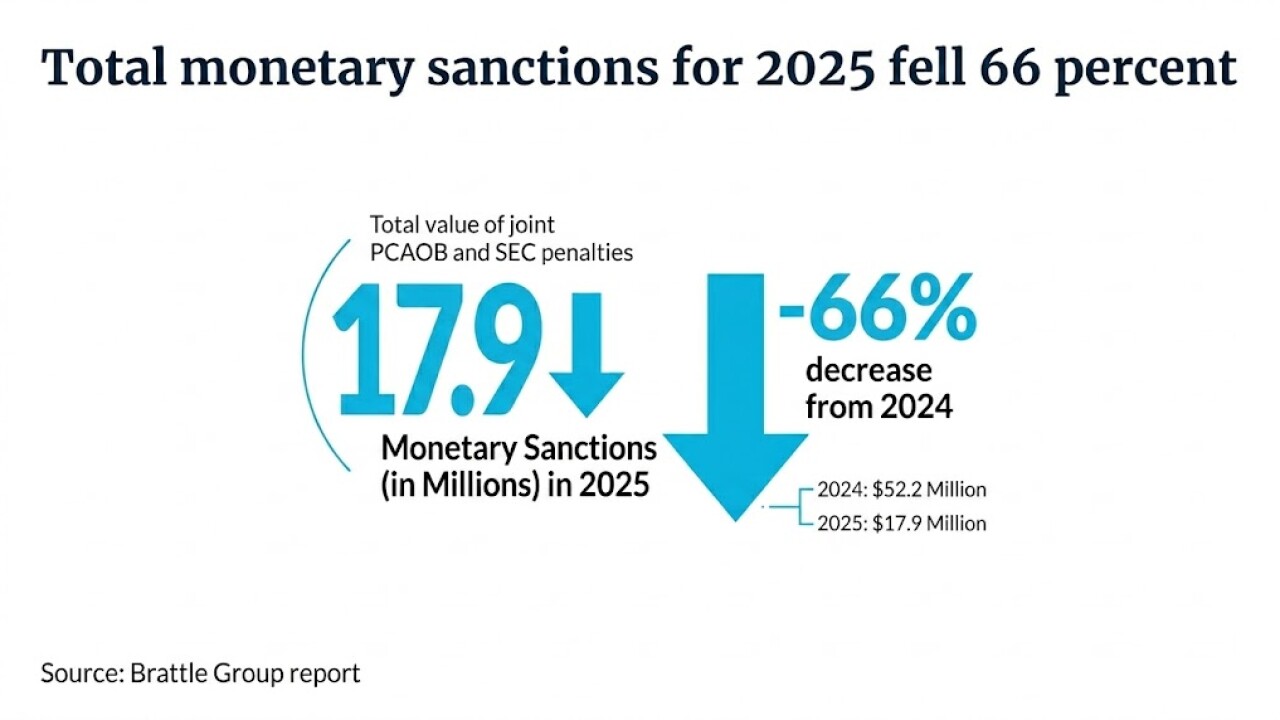The Center for Audit Quality has published a member alert to help auditing firms address risks on audits on upcoming audits, highlighting some that officials with the Securities and Exchange Commission and the Public Company Accounting Oversight Board also pointed to during a conference Thursday.
The CAQ’s document,
“This alert summarizes potential areas of risk and can be a useful resource for our auditing firm members as they head into the 2014 audit cycle,” said CAQ executive director Cindy Fornelli in a statement Thursday. “The CAQ will update the alert annually as a part of the profession’s commitment to a continuous cycle of improvement.”
The 2014 alert covers a number of auditing considerations, including revenue recognition, going concern, internal control over financial reporting, auditing accounting estimates, Including fair value measurements, engagement quality review, professional skepticism, related parties and amendments to certain PCAOB auditing standards regarding significant unusual transactions.
On revenue recognition, for example, the alert provides an overview of recent regulatory developments including
Given the importance of internal control over financial reporting, the alert also provides the latest information and developments identified through the PCAOB inspection process on ICFR and other highlighted areas. “The inspection process offers valuable information that the profession considers carefully as it approaches its critical work,” said Fornelli.
SEC and PCAOB officials discussed some of the same issues during an auditing conference Thursday at Baruch College’s Zicklin School of Business in New York. PCAOB chief auditor and director of professional services Martin Baumann said the PCAOB would be issuing a consultation paper on going concern evaluations to solicit comments before issuing a proposed standard that might include items such as when an auditor should report substantial doubt. He noted that going concern is a substantial issue that needs to be resolved as soon as possible.
Brian Croteau, deputy chief accountant for the SEC’s professional practice group, discussed independence concerns, pointing out that an auditing firm needs to be careful about providing services, such as tax services, that might put them in the position of acting like employees of the client.
Helen Munter, director of the PCAOB’s Division of registration and Inspections, said their inspections this coming year will focus on risk assessment in areas such as professional skepticism. She noted that the PCAOB has seen a resurfacing a problems where auditors use the same pricing source as the original issuer for estimating figures such as fair value measurements, so they come up with similar estimates.
Baumann pointed out that the PCAOB has also received comments on the use of outside specialists by auditing firms and how they come up with estimates that vary from those of management.





